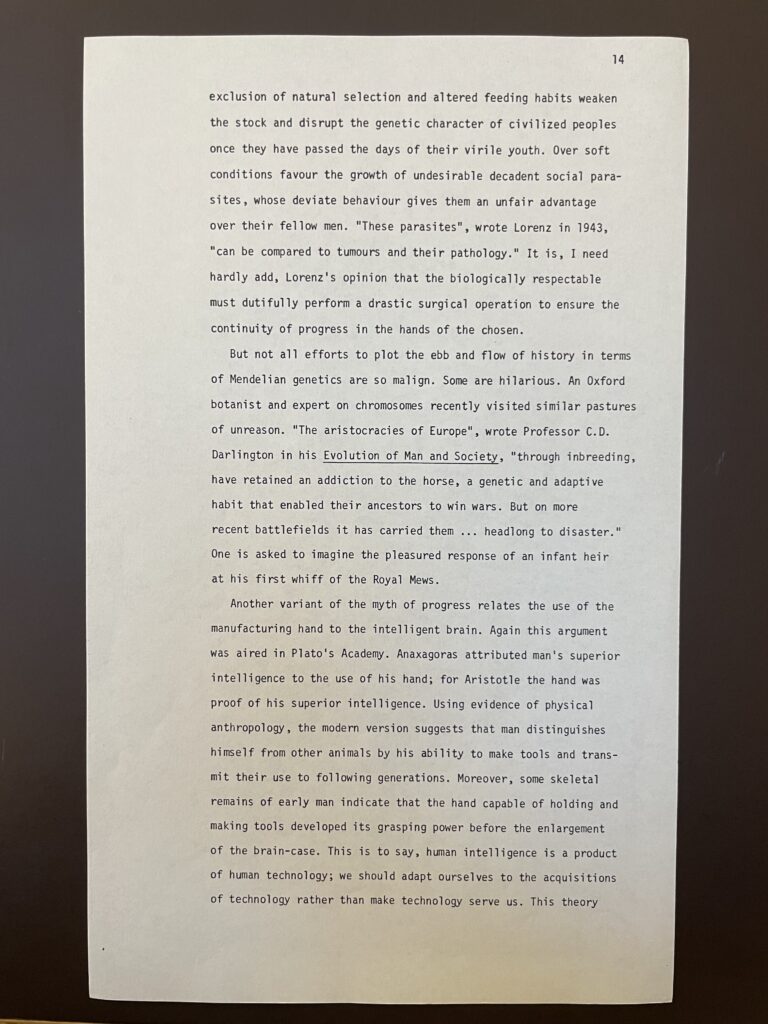The Nomadic Alternative – Page 14
The Nomadic Alternative
Page 14
exclusion of natural selection and altered feeding habits weaken
the stock and disrupt the genetic character of civilized peoples
once they have passed the days of their virile youth. Over soft
conditions favour the growth of undesirable decadent social para-
sites, whose deviate behaviour gives them an unfair advantage
over their fellow men. “These parasites”, wrote Lorenz in 1943,
“can be compared to tumours and their pathology.” It is, I need
hardly add, Lorenz’s opinion that the biologically respectable
must dutifully perform a drastic surgical operation to ensure the
continuity of progress in the hands of the chosen.
But not all efforts to plot the ebb and flow of history in terms
of Mendelian genetics are so malign. Some are hilarious. An Oxford
botanist and expert on chromosomes recently visited similar pastures
of unreason. “The aristocracies of Europe”, wrote Professor C.D.
Darlington in his Evolution of Man and Society, “through inbreeding,
have retained an addiction to the horse, a genetic and adaptive
habit that enabled their ancestors to win wars. But on more
recent battlefields it has carried them … headlong to disaster.”
One is asked to imagine the pleasured response of an infant heir
at his first whiff of the Royal Mews.
Another variant of the myth of progress relates the use of the
manufacturing hand to the intelligent brain. Again this argument
was aired in Plato’s Academy. Anaxagoras attributed man’s superior
intelligence to the use of his hand; for Aristotle the hand was
proof of his superior intelligence. Using evidence of physical
anthropology, the modern version suggests that man distinguishes
himself from other animals by his ability to make tools and trans-
mit their use to following generations. Moreover, some skeletal
remains of early man indicate that the hand capable of holding and
making tools developed its grasping power before the enlargement
of the brain-case. This is to say, human intelligence is a product
of human technology; we should adapt ourselves to the acquisitions
of technology rather than make technology serve us. This theory
Editor's Note: This text has been transcribed automatically and likely has errors. if you would like to contribute by submitting a corrected transcription.
